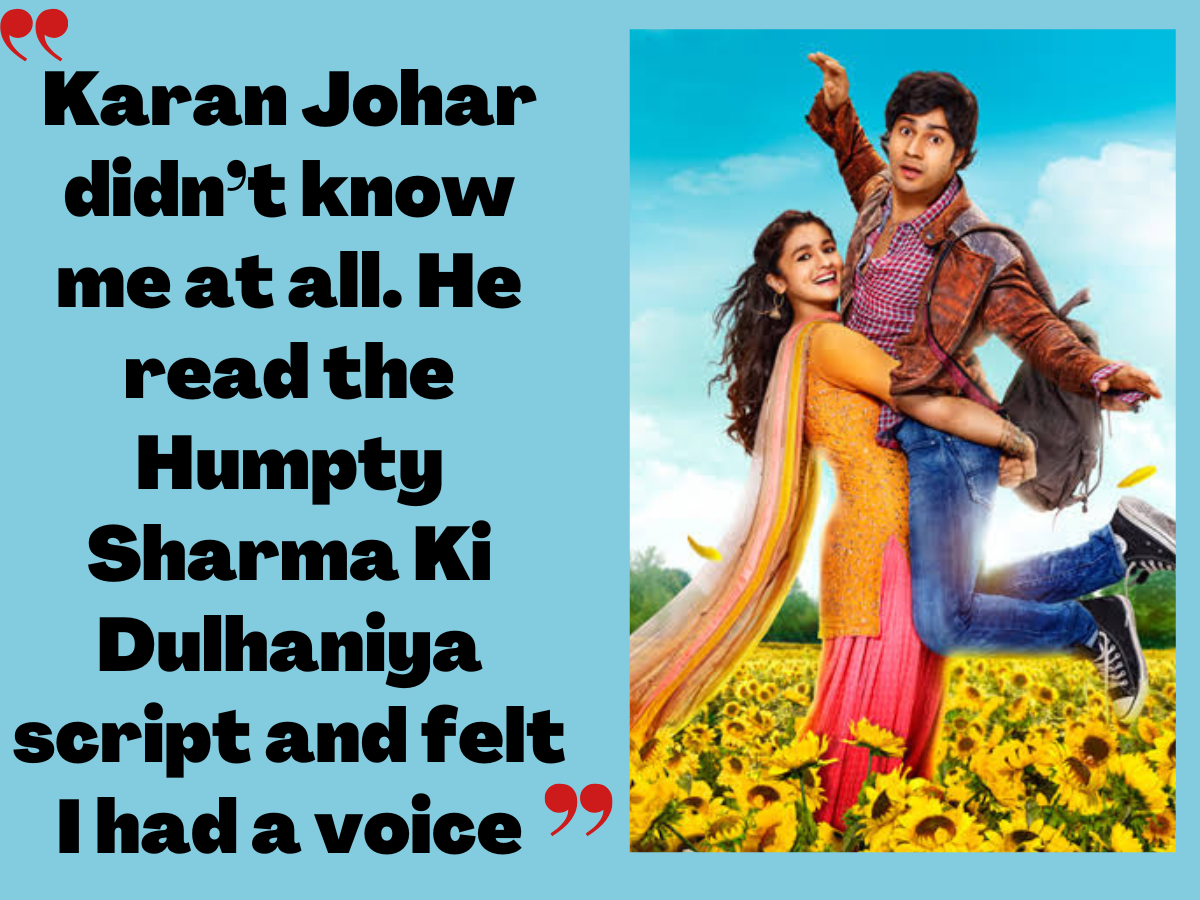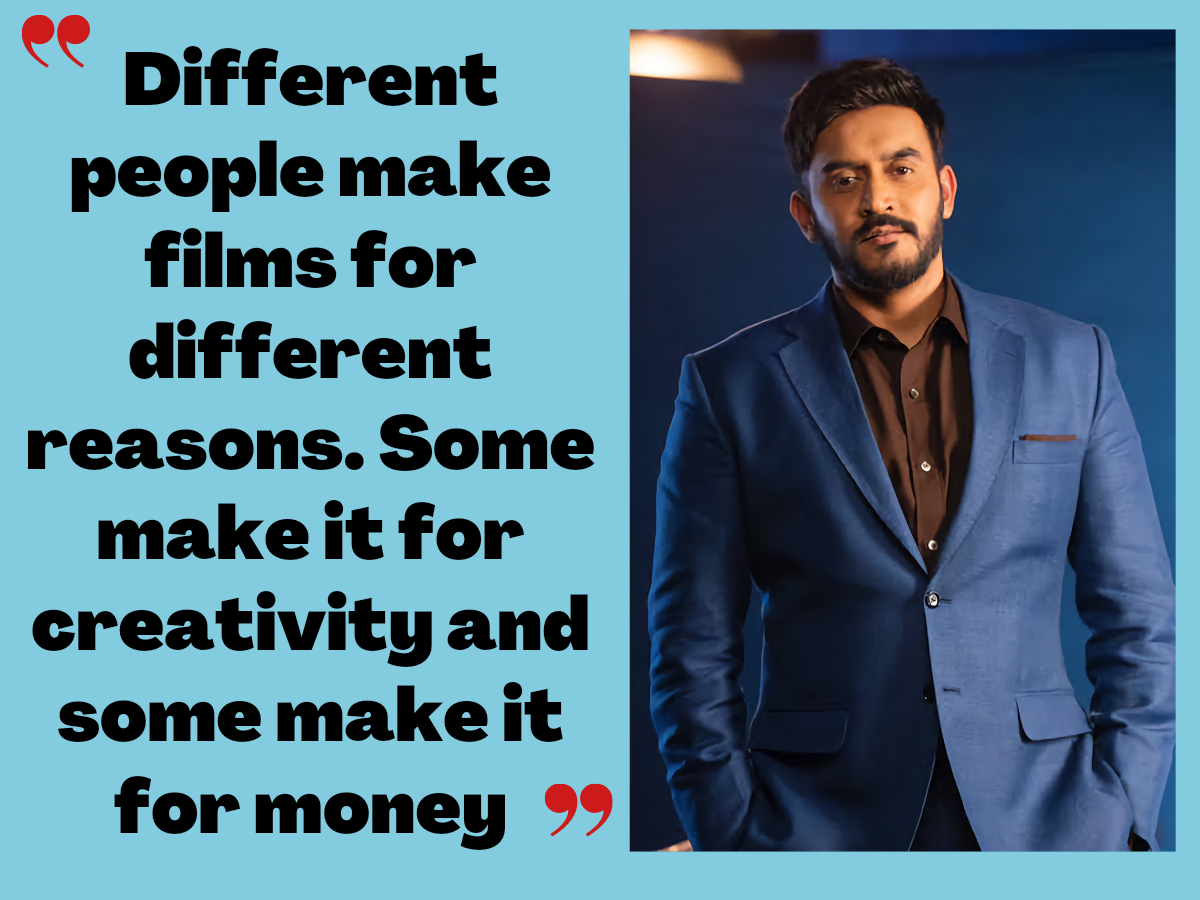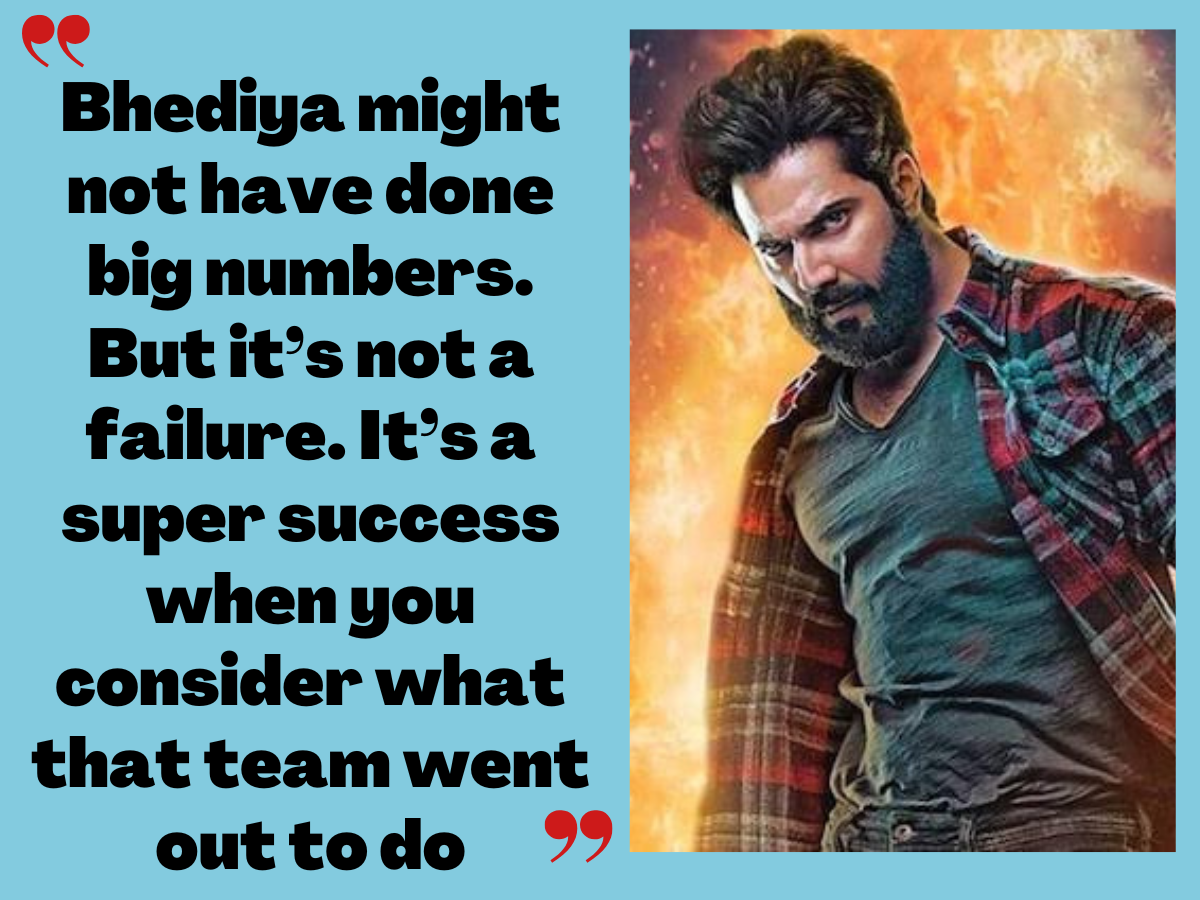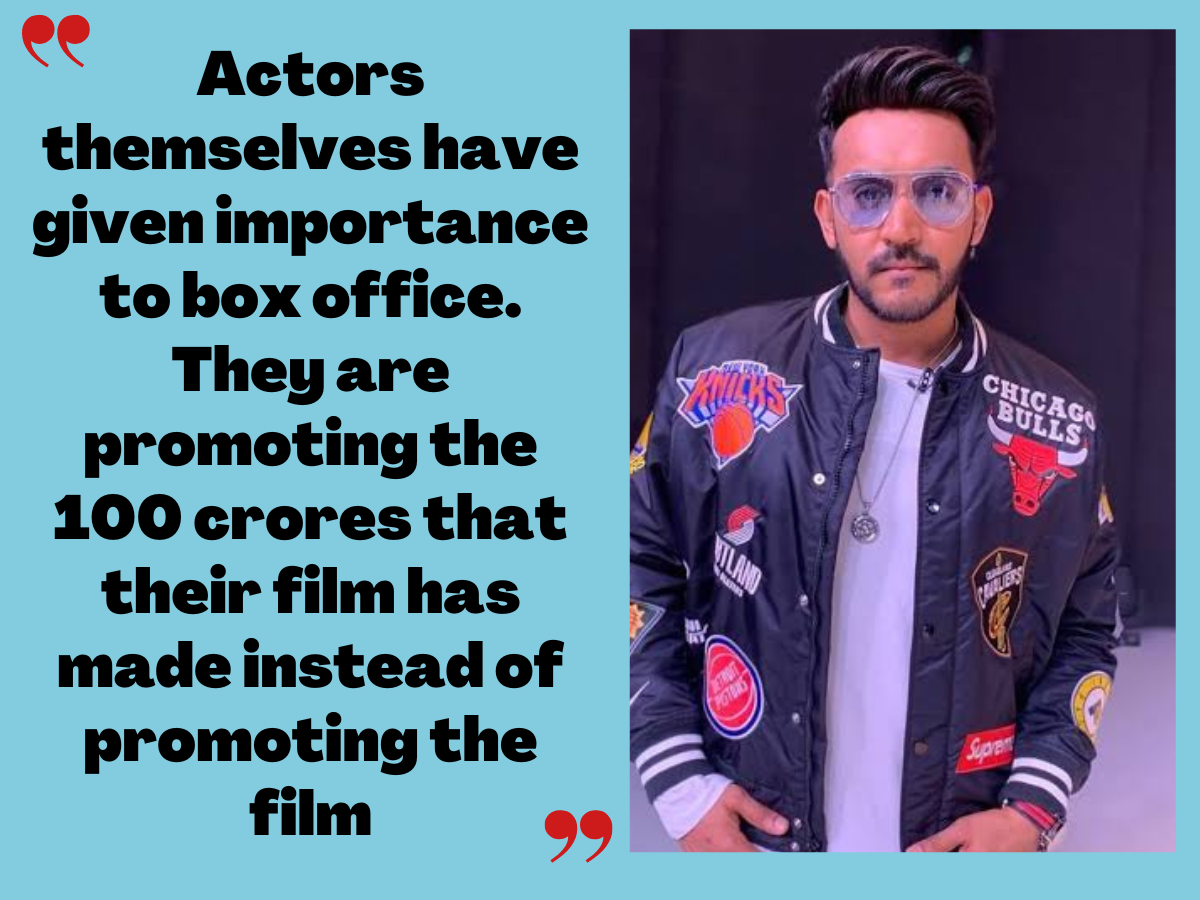What sort of challenges did you face during your struggling days?
I started my journey in the entertainment business in the year 2000. I started with dancing, then I was teaching dance, then I moved to events. When I came to Mumbai, I realized that there was so much chaos. I need to have some grounding. So, I went to film school. By the time I graduated from film school in 2008, I already had eight years of struggle but no direction. But the one motivating factor which is key is that you need to believe in yourself. You have to believe that you have a voice and it needs to reach the people.
The other thing is that you cannot get offended or depressed if someone does not reply to you. You have to take it as an experience in life. During my earlier days, I have written a lot of emails, Facebook messages, and direct messages to so many people in the industry. You have to do it in a respectful way. You shouldn’t beg, but you should not do it with a sense of entitlement. You have to find the correct language to reach out to people. You have to put your point across and hopefully, someone will reply.
How did you end up at Dharma Productions?
I wrote seven screenplays. I was pitching to their creative team. I think they got so troubled by me that they decided to listen to my script. I never shied away from it. From the year 2010 to 2013, I wrote seven 120-page screenplays with dialogue. I kept pitching my films to them. My seventh screenplay was Humpty Sharma Ki Dulhaniya. And that’s when the creative team liked it and made me meet Karan Johar who loved the film. Karan didn’t know me at all. He read the script and felt that this boy has a voice and wants to tell a story.

I think people get too caught up with it that they don’t want to struggle. You have to adapt to the industry. You need to be self-critical, and self-analytical and learn from every meeting. You have to work on yourself and you will break through.
What kind of films do you want to make under your banner Mentor Disciple Films?
The name Mentor Disciple Films is also self explanatory. I am a practicing Buddhist. The role of a mentor is very important in my life. I think Karan Johar has been a phenomenal mentor to me. Just trusting me blindly and then guiding me through my life and ensuring that I keep making films that I feel like. I have been very fortunate with the opportunities that I have got. And now I want to give back. I haven’t reached the place where I want to be in life but still, I want to have people around me with whom I can grow.
For example, I got the opportunity to co-produce Good Newwz, Bhoot, Yodha. All those writers and directors are the ones I have got an opportunity to work with, nurture them, and make sure that they deliver. Other than that there are many technicians whom I have got the opportunity to give breakthroughs. One of the responsibilities that I will take very seriously at Mentor Disciple Films is to really promote new talent in all departments of filmmaking. My intent is to give talent to the industry so that the industry keeps growing.
But how will the new talent be able to reach you?
It’s very simple. My email address is widely available. Some people contact me on my phone or social media. Some people drop their CVs at my office. I really take time to go through whatever I can and ensure that I reply to the person. There are a lot of musicians who approach me directly and send their songs on WhatsApp. I end up listening to them. A couple of songs in our movies have come up that way. Someone had just sent me a song on WhatsApp. I liked the song and I called that person for a meeting. There’s a song Nain Ta Heere in Jugjugg Jeeyo. The composer had randomly sent the song to me. I loved it and sent it to director Raj Mehta. He loved it and the song is in the movie. Any person who has the desire to reach will reach there.
When we came into the industry, the avenues were far lesser. We couldn’t even make phone calls. But we found our way. I think a lot of people want to cut down the wait time and that is not the right approach. A person needs to keep hustling every day. People are looking for freebies and gifts.
Are you tempted to direct every script that you write?
That temptation is always there. But you have to react to your circumstances. I have written things for which I was not given a credit. But at that time, I needed money. I wrote and got the money for it. So, the need for which I had written was satisfied. When I wrote Humpty Sharma Ki Dulhaniya, I was clear that I wanted to direct it. So, you have to react to your needs and circumstances. You don’t have to follow someone’s journey. I don’t think you will succeed in this industry by just being a follower. You have to be very aware of who you are and start making your own journey.

As a writer, what is your take on the perception that writers are not well respected or well paid. Is there a dearth of good writers and are we relying too much on remakes?
It’s a clichéd statement but we are indeed looking for new and good scripts. But different people make films for different reasons. Some make it for creativity and some make it for money. All are welcome and all will find an opportunity. I don’t think that there’s such a huge slump that people are panicking about.
As for remakes, some people do remakes whereas some people create original films. Brahmastra is not a copy of anything. It’s a product of labour and the vision of Ayan Mukerji. The West has been investing in technology for 40-50 years. We have started doing that just recently. So, there’s a big scope to learn from them.

Bhediya was such a fresh attempt to make something unique. We need to stop letting box office dictate our creativity. From the trade perspective, Bhediya might not have done big numbers. But according to me, it’s not a failure. It’s a super success when you consider what that team went out to do. The storytelling and VFX are brilliant. What we need to do is become less transactional and more creative.
But everyone is looking at an actor’s and film’s last Friday.
It is being looked at because they themselves have given importance to it. If an actor is promoting the 100 crores that his film had made instead of promoting the film itself, then what do they expect?

Do you follow any particular filmmakers? Which directors have had a big impact on your craft as a storyteller?
To be honest, I don’t follow anybody. While aspiring to become a director, certain films do inspire you but then you think how differently you could have made certain things. I think that thought turns you into a director. I don’t follow any particular filmmaker. I follow good films. Of course, we have great filmmakers such as Rajkumar Hirani, Zoya Akhtar, Karan Johar, Rohit Shetty and Sanjay Leela Bhansali, who have made a name for themselves. I aim to do something different with every film. I want to keep experimenting and maybe out of that, I will find a genre for myself that I’d do more of. But my true desire is that I want to make different kinds of films.
If you were to make a film on a real-life person who would that be?
Actually, there is one person whose name I can’t recollect. But his story is very interesting. He was a tailor in Bollywood till the 80s and 90s. There is some amazing trivia about him because the heroes would fight to get him to do their costumes. He has a shop in Bandra. His story is very interesting because he has seen all Bollywood stars up close and personal. I would like to tell his story. I had worked with him briefly when I was working as an assistant.
Why did you choose the title Govinda Naam Mera for your last release?
I wanted a title that is close to Marathi culture. Govinda is a name that is famous in Maharashtra in general. I had a friend in school who was called Govinda and the tragedy of his life was that nobody called him by his real name. Everyone called him by several nicknames. And I wanted to use that element in the film because the character goes through those struggles when he is trying to find his identity. And on a broader level, there’s no other to personify commercial Hindi cinema other than Govinda ji himself. So, for me, it was a tribute, yet, at the same time staying authentic to what the film is. When I looked at Vicky Kaushal, I found that he is the perfect Govinda for the film.
Were you confident that Vicky Kaushal would pull off the role?
I was very confident that Vicky was going to nail this character. Having known him since our theatre days helped a lot. Also, he has grown up in Mumbai. He understands the language and lingo. He has done absolute justice to the film.
Our aim was to make a film that everyone enjoys. Unfortunately, the times were such that we were not sure whether to release the film in theatres or not.

